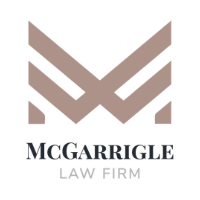Southeastern White Collar Crime Lawyer, Pennsylvania
Sponsored Law Firm
-
 x
x

Click For More Info:
-
James E. Crawford, Jr. & Associates, LLC
999 Corporate Blvd. Suite 100 Linthicum, MD 21090» view mapCriminal Defense, Divorce & Family Law Move Forward With Confidence
Our Firm's team of family, criminal, and business lawyers understand that each case presents unique challenges and must be met with equally unique approaches.
800-789-9220
Daniel McGarrigle
✓ VERIFIEDMilitary & Veterans Appeals, White Collar Crime, DUI-DWI, Criminal
Attorney Daniel McGarrigle is an aggressive advocate and experienced litigator; he has tried hundreds of cases and handled all types of criminal matte... (more)
FREE CONSULTATION
CONTACTPeter E. Kratsa
Traffic, Divorce & Family Law, White Collar Crime, Criminal
Status: In Good Standing Licensed: 31 Years
Ashly Ryan McGarity
Visa, DUI-DWI, Domestic Violence & Neglect, Firearms, White Collar Crime
Status: In Good Standing
Terence Patrick Ruf
Litigation, White Collar Crime, Consumer Protection, Business
Status: In Good Standing Licensed: 18 Years
Edward John King
Real Estate, Pharmaceutical Product, Divorce & Family Law, White Collar Crime
Status: In Good Standing Licensed: 51 Years
David Michael Iannucci
Internet, White Collar Crime, Criminal, Corporate
Status: In Good Standing Licensed: 17 Years
 James Crawford, Jr. Linthicum, MD
James Crawford, Jr. Linthicum, MD Practice AreasExpertise
Practice AreasExpertise

